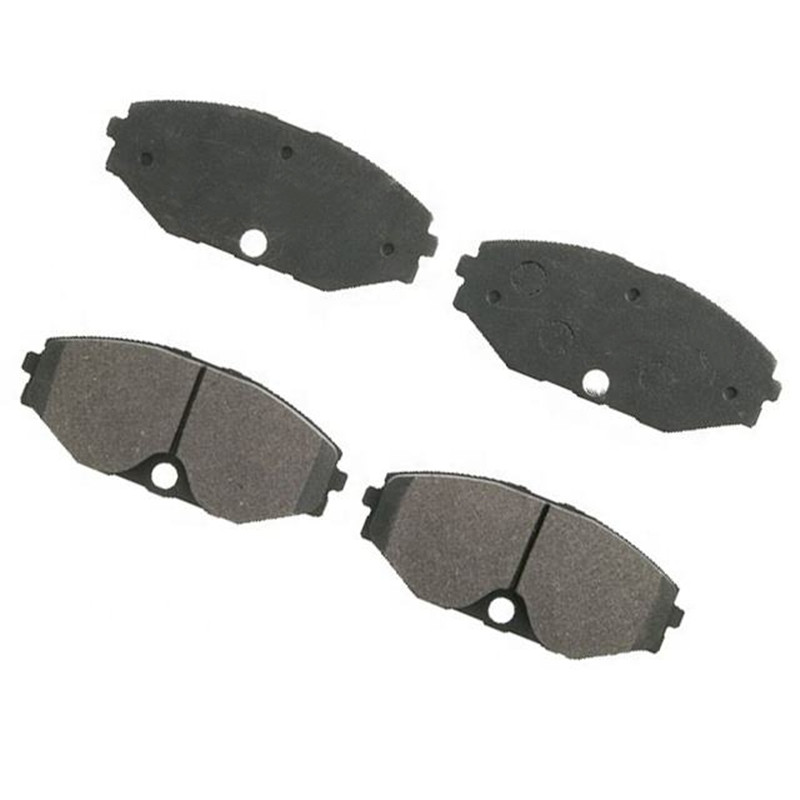The Essential Role of Brake Pads in Your Vehicle's Safety: A Closer Look at the Auto Part Brake System
2023-10-18
When it comes to vehicle safety, few components are as critical as the brake system. The ability to bring your car to a smooth and controlled stop is paramount for preventing accidents and ensuring the well-being of both drivers and pedestrians. Among the various parts that make up the brake system, the brake pad stands out as a vital component, responsible for the crucial task of slowing down or stopping your vehicle effectively.
Understanding the Brake System: A Synchronized Effort
Before we delve into the importance of brake pads, it's essential to understand how the entire brake system works. In most modern vehicles, the brake system operates hydraulically, which means it relies on brake fluid to transmit force from the driver's foot to the brakes. When you press the brake pedal, hydraulic pressure is generated and transmitted through brake lines to the braking mechanism of each wheel. This pressure then activates the brake calipers, which, in turn, apply pressure on the brake pads.
The Brake Pad: A Frictional Superhero
Brake pads are small but mighty components of the braking system. They play a critical role in converting the kinetic energy of your moving vehicle into heat energy through friction. This transformation of energy is what ultimately causes your vehicle to slow down and stop.
Most brake pads are made from a combination of materials, with the two most common types being:
1. Semi-Metallic Brake Pads: These pads consist of a blend of metal shavings and other materials bonded together with resin. They offer excellent stopping power and are durable, making them suitable for various driving conditions. However, they tend to produce more dust and can be a bit noisy.
2. Ceramic Brake Pads: These pads are composed of ceramic fibers, non-ferrous filler materials, and bonding agents. Ceramic pads are known for their quieter operation, low dust production, and better performance in high-temperature situations. They are often favored in luxury and high-performance vehicles, though they can be pricier than other types.
Why Brake Pads Require Regular Inspection and Replacement?
Brake pads, like all automotive components, are subject to wear and tear over time. The friction that allows them to function effectively also causes them to gradually wear down. As brake pads wear, their thickness reduces, which can compromise their ability to generate enough friction to stop your vehicle safely.
Vehicle manufacturers typically provide recommendations for when to replace brake pads based on the vehicle's usage, but it's essential to be attentive to warning signs that may indicate it's time for new brake pads. Some of these signs include:
1. Squealing or Screeching Noises: A high-pitched noise when applying the brakes is often an indication that the brake pads are reaching their minimum thickness.
2. Vibration: If you feel vibrations or pulsations through the brake pedal when stopping, it could be due to uneven wear on the brake pads.
3. Reduced Braking Performance: If you notice that your vehicle is taking longer to stop or the brake pedal feels spongy, it's crucial to have the brake system inspected.
4. Visible Wear Indicator: Many brake pads come with a wear indicator—a small metal tab that creates a screeching sound when the brake pads are nearly worn out. If you see or hear this, it's time to replace the brake pads.
The Importance of Quality Brake Pads
When it's time to replace your brake pads, choosing high-quality replacements is crucial for your safety and the overall performance of your vehicle. While it may be tempting to opt for cheaper options, investing in reputable and reliable brake pads will ensure optimal braking performance and longevity.
OEM (Original Equipment Manufacturer) brake pads, which are made by the same company that manufactured your vehicle, are often a safe bet for quality and compatibility. However, there are also reputable aftermarket brake pad manufacturers that produce high-quality options.
Conclusion
In conclusion, brake pads are an integral part of your vehicle's brake system, playing a central role in ensuring your safety on the road. Regular inspection and maintenance of your brake pads, along with timely replacements, are essential to keep your vehicle's braking system in top-notch condition. Remember that investing in high-quality brake pads is an investment in your safety and the safety of others on the road.
As a responsible driver, always be attuned to any signs of brake pad wear and promptly address any issues with the help of a qualified automotive professional. By giving proper attention to your brake system, you can enjoy a smoother and safer driving experience for miles to come.



